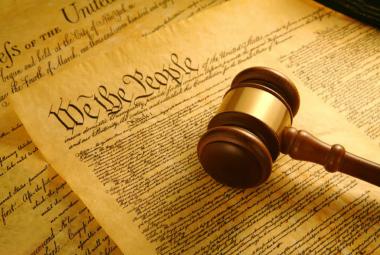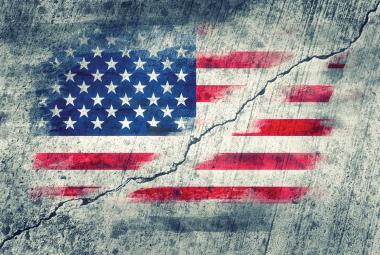We conclude our three-part China series this month with an exploration of the affects of Communism and the struggles facing the current regime.
The father of Communism in China, Mao Zedong, was born on December 26, 1893. He was raised in a small community called Shaoshan (SE China). Mao's father was identified as a harsh man who constantly harassed the young Mao and the rest of his family. As soon as he was able, Mao left home and joined the Nationalist army, when in 1911 the Revolution against the last Chinese emperor began.
Mao was introduced to the philosophy of Marxism in a training college located in Changsha and came to command in 1935 as chairman of the Party’s Politburo. He led the communists after the army successfully finished the Revolution by defeating the Nationalists. As a result, in 1949, the leader of the Nationalist Party, Chiang Kaishek fled to Taiwan with other members of the Nationalist Party and formed the Republic of China.
After years of civil wars, once Mao was in control, the Chinese people loved him and gave him ample support in return for the promise of improved lives for the peasants. It all went wrong very quickly when Mao told the country they could express their citizens' feelings, in which little objection was expected, but the opposite happened.
Mao turned into a powerful dictator, ordering anybody to be killed or beaten if even a bad word was mentioned. Mao's biggest opposition came from a group called Rightists. Accusations against the party were not tolerated and death devastated China because of slaughtering and starvation. It was usual for Red Guards (a force equivalent to an army with the color red symbolizing communism) to demolish anything that was old or having to do with the past. Homes were destroyed and belongings, both meager and extravagant, were taken. All religion and religious materials were forbidden under the new regime. Chinese citizens were required to have a small book, which included the sayings and quotes from Mao, which was also to be memorized. All of these rules were stressed to the Chinese over and over throughout Mao's reign.
Horrific times defined a significant part of China's continually changing history. In 1958, the Great Leap Forward was activated. Predictions included that during the next few years the Chinese would make economic gains on western nations. From the years 1966-1976, the Cultural Revolution played a major role in the story of China. Schools and universities were closed for a long time, western clothing was forbidden, and young protesters were pursued by the Red Guards. The Cultural Revolution left millions of Chinese dead.
In 1978, Deng Xiaoping picked up where Mao had stopped, and eventually developed a better China, but was not viewed as much better than the "evil" Mao had been. It was under  his watch that China actually started to allow foreigners and immigrants to travel and explore China's magnificent improvements and the economy gradually increased. Countrymen and workers' salaries doubled and for the first time, China was able to compete against western countries. However, the event that declared him the "devil himself" was the Tiananmen Square massacre, where thousands of Chinese marched peacefully on the street, and hundreds were killed.
his watch that China actually started to allow foreigners and immigrants to travel and explore China's magnificent improvements and the economy gradually increased. Countrymen and workers' salaries doubled and for the first time, China was able to compete against western countries. However, the event that declared him the "devil himself" was the Tiananmen Square massacre, where thousands of Chinese marched peacefully on the street, and hundreds were killed.
Today, under the leadership of President Hu Jintao, we view China and no longer see the bleak People's Republic of Mao Zedong. We may even question our Cold War fears. Today's China looks more capitalist, more diverse, more colorful, and more globalized. Hu's presidency represents China's transition from the established communist "bureaucracy" to a pragmatic "technocracy" in which science and technical skills are valued for leadership.
However, political leadership is still a Leninist-style regime, run by a Chinese Communist Party (CCP) governed, in hierarchical ascending circles, by a Central Committee, a Politburo, and a Standing Committee of the Politburo. The Standing Committee and the Politburo are the two most powerful governing bodies and determine the outcome of all major issues affecting Chinese affairs.
The National People's Congress (NPC) is the central parliament which meets for two to three weeks once per year. Most of the representatives in the NPC are active Communist Party (CCP) members. Representatives are elected every five years by local congresses throughout China's 22 provinces and five autonomous regions. The primary purpose of the NPC is to discuss and approve plans related to the economy and warfare. Members of the CCP are active at every level of society - more so in the municipalities and less so in the rural farming districts. The CCP has to approve all election candidates. However, most posts are appointed rather than "elected."
Still, Hu is promoting his political philosophy to establish a "Harmonious Society" domestically and "Peaceful Development" internationally. As peaceful as his plans sound, many are still pondering the mixed signals coming from China. China's leaders face a disturbing paradox - as the country becomes more developed and prosperous, the more insecure and threatened the government feels.
Beginning in 1989, China watched as communist governments in the Soviet Union and Eastern Europe collapsed almost overnight. A unacceptable scenario for China’s leaders is a national protest movement of discontented groups - unemployed workers, hard-pressed farmers, students, and organized religious groups - united against the regime in fervor for nationalism.
The government response to this perceived threat is the call to "social stability," in which Communist Party leaders on all levels publicly discuss the need for the Party to maintain order and prosperity. The message is to reinforce the concept that a country the size of China would soon descend into civil war and chaos without it.
It seems some of Chinese Communist Party insecurity is legitimate. After twenty-five years of market reforms, the Party cannot keep track of the population, much less control it. Over one hundred million farmers have moved to cities. Approximately three-quarters of the workforce are employed outside state sanctioned supervision. Ninety percent of those with college degrees access information on the Internet. As CCP leaders try to censor the Internet and media, President Clinton's remark about China is often retold, "A tight grip is actually a sign of a weak hand."
A growing disparity is occurring between the lifestyles of the rich and the struggles of the poor who cannot afford school fees and medical expenses. People are beginning to talk about official corruption as a means of affluence instead of hard work and ingenuity.
These leadership insecurities in Beijing are causing a growing sense of China’s fragility. As we watch China’s growing economic and military strength, it is its weakness that causes the most alarm. Susan Shirk describes what could be our worst-case scenario as we await China’s next move:
The weak legitimacy of the Communist Party and its leaders' sense of vulnerability could cause China to behave rashly in a crisis involving Japan or Taiwan, and bring it into military conflict with the United States. If economic growth slows and problems multiply, there is a possibility that China's leaders could be tempted to "wag the dog"—mobilize domestic support by creating an international crisis.
The Chinese leaders have been working for years to reclaim centralized control over the economy to defer an economic crisis, or at least control the consequences. This may be the beginning of a new cycle for China in which the confluence of the openness of the Olympics and the crisis of commodities at this critical moment of recentralization may well be more than the government can manage. If October passes and the new security, social and economic regulations put in place in the past few months don't revert to their pre-Olympic status, Beijing may see a crisis coming. If that is the case, so may we.
Notes:
Mann, James, The China Fantasy, Why Capitalism Will Not Bring Democracy to China, Penguin Books, 2007.
Menges, Constantine C., China, The Gathering Threat, Thomas Nelson, Inc., Nashville, TN, 2005.
Shirk, Susan L., China, Fragile Superpower, Oxford University Press, NY, 2007.






